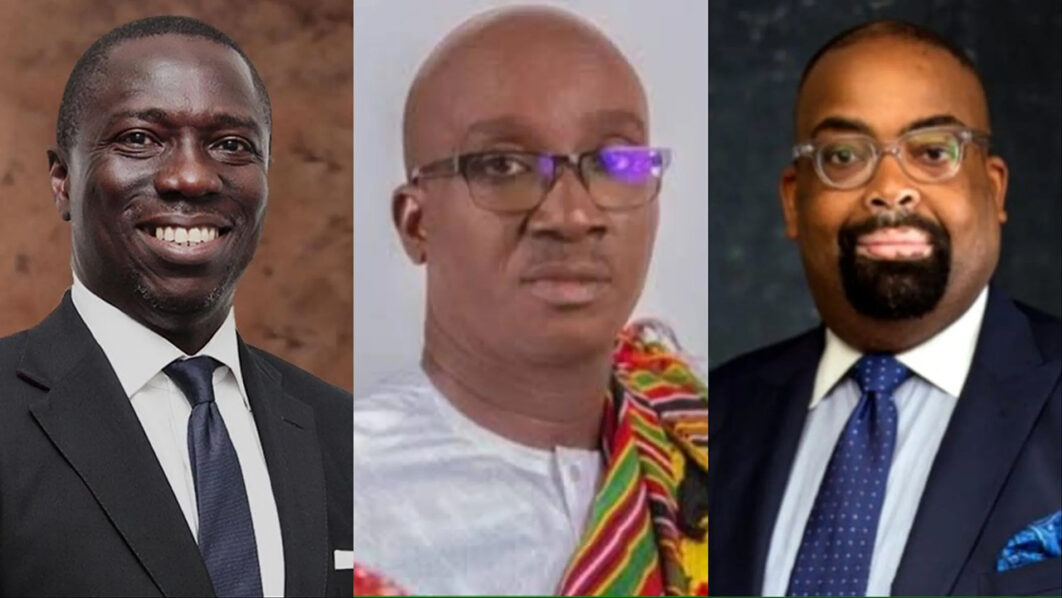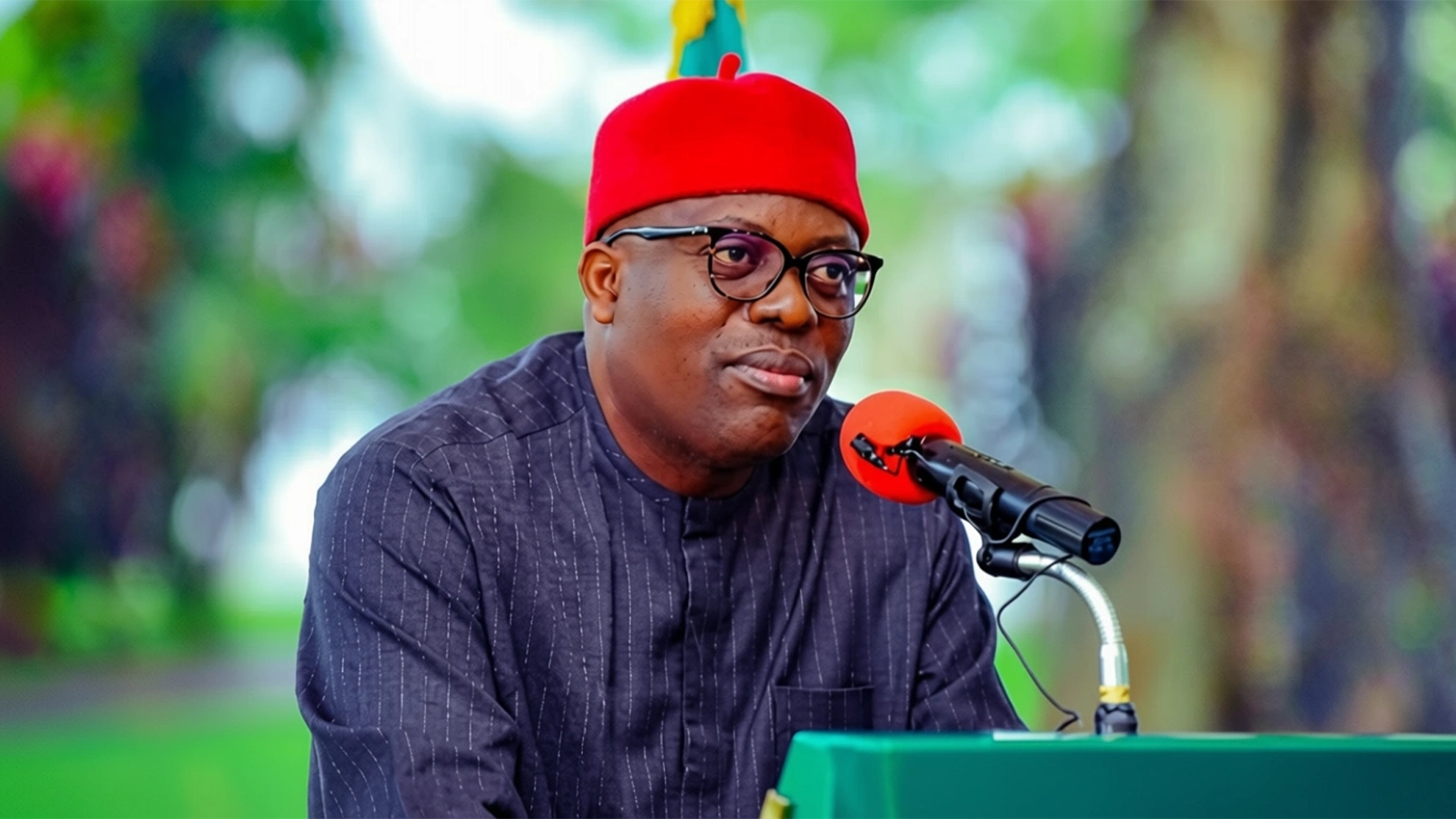
The last governorship election in Edo State in 2020, which was marred by incidents of violence and vote-buying, may pale into insignificance in comparison to what the parties have prepared for this weekend election. With a heavy war chest and willing ‘vote sellers’, Edo is poised to set another record in election profligacy, MONDAY OSAYANDE and MICHAEL EGBEJULE report.
As the countdown begins for the September 21 off-cycle governorship election in Edo State, strengths and weaknesses of the leading candidates are being weighed by the electorates with a view to ascertain who the cap fits the most.
Although 17 parties fielded candidates for the election, realities on ground indicate that the candidates of Peoples Democratic Party (PDP) Asuerimen Ighodalo, All Progressives Congress’s (APC) Monday Okpebhole, and Labour Party’s (LP) Olumide Akpata, are not prepared to leave anything to chance in their desire to capture the governorship seat. They are, therefore, campaigning with their manifesto and investing their resources to garner support of the electorates.
However, political watchers believe that apart from intensive campaigns by the three leading contenders, their ability to dole out money may be a strong factor that could swing victory to one of them.
They hinged their assertion on how voters’ inducement has been deciding the outcome of election in Nigeria and the prevalent economic hardship that has dragged many into poverty net.
Indeed, their campaigns have not been free of inducement in various forms including distribution of food items, clothing materials and cash to the electorate, raising concerns on how voters will be induced on the Election Day.
Confirming that the leading parties have already started to induce the electorate, Director of Programme, Yiaga Africa, Cynthia Mbamalu, on Friday, accused politicians of distributing cash, food items to entice voters throughout the pre-election campaign. She regretted that election mandates are becoming less credible as a result of this trend.
According to Yiaga Africa reports, “These incidents were primarily noticed or heard about in Uselu Market, Egor Local Government Council Area (LGA), where market women received monetary gifts ranging from N1000 to N2000 from APC and PDP parties during their campaign tours. Similarly, PDP campaigners gave wrappers to women who joined the campaign gathering in Esan North East LGA. “In the Ubiaja community of Esan South East LGA, PDP campaigners also gave several store owners shirts, caps umbrellas and as much as N2000,” Mbamalu said .
Recall that the 2020 governorship election in the state was marred by vote-buying and violence. Reports of the Centre for Democracy and Development (CDD) after the election revealed that it was characterised by massive vote buying and voters’ inducement.
The Organisation Director, Idayat Hassan, had said: “CDD observers reported cases where tickets were also given in lieu of cash for voters to vote and then return to use the ticket for collection of cash. In several other cases, as reported by our observers, cash of between N1,000 and N5,000 was distributed to voters who agreed to cast their ballot for the party paying for the vote,” she said.
But if parties offered N5,000 to induce voters in 2020, The Guardian investigation revealed that they have prepared to offer between N20,000 and N25,000 in their desperation to convince electorates to vote for them. And to prevent an electorate from collecting money without voting for them, they are adopting what is known in the local parlance as “see and buy.”
While some residents of Benin who spoke to The Guardian expressed their determination to reject money from politicians to vote against their conscience, some said they will collect the money and still go ahead and vote for the candidate of their choice while few said they are ready to go for the highest bidder. To them no government has been able to keep its promise in Nigeria, saying “all of them are the same.”
Speaking on the matter, a civil servant, Mr Osarentin Iyamu Igbinobaro, said vote-buying could not be completely ruled out in this election, but “we must change the narrative”.
According to him, “with the hardship currently sweeping across board, some people are still willing to accept anything money; maybe N2,000, N5,000 and above, just to survive and cross over to the next day. Some will call it stomach infrastructure while others refer to it as survival of the fittest.
“The reason being that those who sold their conscience are not considering the negative effect of their actions”, stated Igbinobaro who explained further that the political class abandoned what they ought to have done when they got to office, having spent a lot of money to secure power.
He said: “Look at what we are experiencing with the presidency today. We all know what really transpired during the 2023 general elections; it was this same issue of vote-buying. Hence, many Nigerians cannot cough or chest out to challenge the wrong doing of Mr President now. The same thing happened during the last governorship election in Edo State in 2020, and now the state is bleeding from it,” he lamented.
A medical practitioner, Patience Irabor, declared that she would not vote against her conscience for any amount whatsoever because “I believe it is not the right thing to do”.
According to her: “Vote-buying is what really brought us to where we are today, dying in the midst of plenty.” She traced the root-cause of bad governance in Nigeria to vote-buying where the country lacks good roads, well-equipped hospitals, functional schools and hyper-inflation, making lives unbearable for most Nigerians. She said: “Don’t forget that we are not getting the righteous one as governor to take us to the Promised Land, simply because the right candidates for the seat of power were deliberately pushed aside for the love of money.”
A cleric, Jatto Edobor, who hails from Iguosula community, Uhunmwode council of the state said, “I may not strongly believe that people will still fall into the traps of the politicians by accepting money from them because everybody is wise now.”
He said: “Money cannot make me change my mind and vote for a wrong candidate. In fact, how much is the person going to offer me to change my mind? So, I think this is not the time to compromise. Money can’t buy my conscience, and those who go for it should think otherwise, and what it has caused the masses.”
But Peter Aibogie said the economic condition of the country will not make him and many of his friends reject any offer from the politicians. According to him, “I got my tricycle on hire purchase and I don’t expect anything from the government. We have tried all of them, but they have failed us. They are all the same. We don’t believe our votes will count. They are playing games with our lives because they are all elites. Whether we collect money or not, they know the winner.”
While PDP and APC are denying allegations of voter’s inducement, however, they are blaming each other for the illegal act. A chieftain of APC and former minority whip at the House of Representatives, Dr Samson Osagie, lamented that vote-buying has caused a major challenge for the electoral system.
According to Osagie, who represented Orhionmwon/ Uhunmwode Federal constituency at the Green House, “Vote-buying is anathema and is something to be dealt with being the strategy PDP wants to adopt in this election. Governor Obaseki used it in 2020 to win the election. But Edo voters are wiser now. They will collect his money and still vote against him and his party.”
But Uhunmwode Council Vice Chairman, Bright Egharevba, who decried vote-buying said PDP would not go for any shortcut to win the election.
“Inducement? No! PDP is not ready to induce anybody with money or anything else but rather the reality on ground will give us victory.” He said that people are no longer interested in what they are going to eat for a few days and then suffer for the rest of the years, hence they are now changing the course of their story because inducement has not helped them in life.
“At the last presidential elections, we saw some people inducing voters but they (the voters) still went ahead to vote their choice, especially here in Edo State. So, inducement is old fashioned, and any party that depends on it will fail.”
The Publicity Secretary of APC in Edo State, Peter Uwadiae, said his party had no reason to engage in vote-buying. He said: “We are not in the business of buying votes and we don’t have any reason to do so. We are not paying for votes. Buying of votes is an electoral offence and we cannot be seen to be committing an offence when we are planning to win the election.
“The only party that will buy votes is the one that feels it has not been accepted and this is a wrong step to be taken by any political party that means well for the Edo people.”
For the state LP Public Relations Officer, Sam Uruopa: “APC and PDP are the ones involved in vote-buying if what you heard is correct. That has been their practice, they also rig elections and are involved in other electoral malpractices. We are urging INEC and the security agencies to watch officials of these political parties closely, especially during the election.
“For the LP, we are not vote buyers and the people are with us. However, we are scared about this age-long practice they have been known for, that they have used to cripple this country and used to bastardise the electoral system.”






